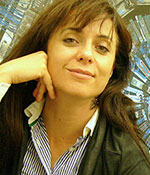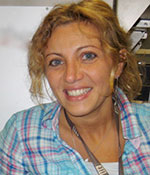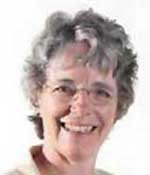Four Newly Elected Members of the FIP Executive Committee
Compiled by E. Malamud using excerpts from the candidate bios and statements




From L to R: Maria Spiropulu, Maria Longobardi, Susan Seestrom, Young-Kee Kim
Maria Spiropulu began her 4-year term in FIP’s Chair Line on January 1, 2014. Spiropulu is a Professor of Physics at Caltech, an experimental physicist who has been researching elementary particles and their interactions in the past 20 years at Fermilab's Tevatron and CERN's Large Hadron Collider (LHC). Her current research interests include searches for dark matter in colliders and in particle/astro-particle observations. In 2009 she was named a Fellow of the AAAS "for her leadership in experimental high-energy physics, in particular for her pioneering efforts in the experimental search for supersymmetry and extra dimensions." Spiropulu writes: “science is one of the few truly international activities; it knows no geographical limitations since the pursuit of knowledge of nature is a trait of all nations and peoples. Scientific exchanges and communication play a sizable part -- larger than the small number of scientists involved -- in determining the intellectual climate of opinion in one country in regard to another. Implications of international scientific interaction and cooperation can be found in the past 70 years, in the data on the funding, manpower and publication yields of all physics disciplines across the world and the influences in thinking as a result of international activities and exchanges both in theory and in experiment. The accelerated pace of physics research and technological progress, due to the massive computing and information highways that render the world an omniconnected network of knowledge, implies that the communication of physicists internationally is the prerequisite for achieving the ambitious scientific and technology goals across all disciplines. […] As an FIP officer I commit to continue fostering international exchanges in physics as a mechanism to build more knowledge- and innovation-based societies globally.”
The two new Members-at-Large on the 13-person FIP Executive Committee are Maria Longobardi and Susan J. Seestrom. Their 3-year terms began on January 1 of this year.
Maria Longobardi was born in Naples, Italy and did her graduate work at the University of Salerno. Longobardi works in experimental condensed matter physics and is currently working at the University of Geneva in the Department of Condensed Matter Physics on the electronic properties of 1D systems at the atomic scale. Longobardi states “cooperation is a key word for science; international and interdiscipinary research teams. [...] Cooperation is also a key point for all scientific communities. I’m strongly convinced that APS plays a crucial role in interexchange between people. The APS is one of the largest community of physicists and, due to the high international profile, offers an unique opportunity of scientific and cultural interexchange. [...] As a member of the FIP Committee I will encourage the interdisciplinarity and interexchange between international members, by promoting and sustaining opportunities of meeting, debate and mobility between researchers of different disciplines and countries, with particular attention to young researchers.
Susan Seestrom has been Associate Laboratory Director for Experimental Physical Sciences at Los Alamos National Laboratory since 2006, and was Associate Laboratory Director for Weapons Physics from 2004 through 2006. Seestrom’s research in nuclear physics ranges from studies of nuclear structure with medium energy probes to studies of the weak interaction using neutrons and most recently she led efforts to develop a source of ultra-cold neutrons at Los Alamos. She is an APS Fellow and has served in various capacities on APS committees. In addition to her professional work, Seestrom is a passionate supporter of math and science education. Seestrom states “I am interested in the Forum on International Physics for two main reasons. The first is the obvious one that physics is increasingly an international enterprise, and as costs of large facilities increases success will rely on international partnership. It is important to build a foundation of understanding and partnership for future international partnerships to succeed. […] My second reason is because I believe education in general, and science education in particular, can play a role in improving lives of people around the globe. I would like to see the physics community play a larger role in this area, and better connections to physicists world-wide could be a starting point.
FIP’s new Councillor is Young-Kee Kim. Kim works in experimental particle physics and is the Louis Block professor of Physics at the University of Chicago. She served as Fermilab Deputy Director from July 2006 to June 2013, and co-Spokesperson of Tevatron’s CDF experiment from 2004 to 2006. She was born and raised in Korea. Kim states “although accelerator physics is an active research field and accelerators are critical for particle physics and other areas in science, we are not educating enough accelerator students.” Kim devotes some of her time on educating the next generation of accelerator physicists, and has served on numerous national and international advisory committees and organized numerous international workshops and conferences. “I deeply care for the international and diverse scientific connection, cooperation and collaboration. I believe that the Forum on International Physics has been and will be playing a very important role in this regard. I learned a very important lesson during my graduate program: a strong sense of community and the power of collaboration. This was crucial for someone like me who was not well prepared for research, and who, then, did not understand English very well. The power and importance of collaboration has been demonstrated on many occasions. I continued to testify to the importance of the community and collaboration. […] My experiences made me appreciate the importance of diversity and inclusiveness and issues and difficulties associated with women and minorities and with those from developing countries. This led to my engagement and activities in diversity. Physics has become dominated by international collaborations. I feel it is in the interest of American scientists to foster such collaborations.”
Disclaimer - The articles and opinion pieces found in this issue of the APS Forum on International Physics Newsletter are not peer refereed and represent solely the views of the authors and not necessarily the views of the APS.
